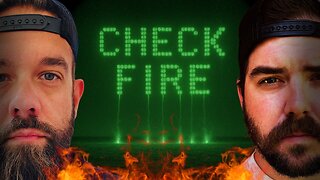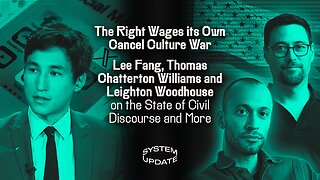Premium Only Content

General Knowledge Questions
Knowledge can be defined as awareness of facts or as practical skills, and may also refer to familiarity with objects or situations. Knowledge of facts, also referred to as propositional knowledge, is often defined as true belief that is distinct from opinion or guesswork by virtue of justification. While there is wide agreement among philosophers that it is a form of true belief, many controversies in philosophy focus on justification: whether it is needed at all, how to understand it, and whether something else besides it is needed. These controversies intensified due to a series of thought experiments by Edmund Gettier and have provoked various alternative definitions. Some of them deny that justification is necessary and replace it, for example, with reliability or the manifestation of cognitive virtues. Others contend that justification is needed but formulate additional requirements, for example, that no defeaters of the belief are present or that the person would not have the belief if it was false.
Knowledge can be produced in many different ways. The most important source is perception, which refers to the usage of the five senses. Many theorists also include introspection as a source of knowledge, not of external physical objects, but of one's own mental states. Other sources often discussed include memory, rational intuition, inference, and testimony. According to foundationalism, some of these sources are basic in the sense that they can justify beliefs without depending on other mental states. This claim is rejected by coherentists, who contend that a sufficient degree of coherence among all the mental states of the believer is necessary for knowledge.
Many different aspects of knowledge are investigated and it plays a role in various disciplines. It is the primary subject of the field of epistemology, which studies what we know, how we come to know it, and what it means to know something. The problem of the value of knowledge concerns the question of why knowledge is more valuable than mere true belief. Philosophical skepticism is the controversial thesis that we lack any form of knowledge or that knowledge is impossible. Formal epistemology studies, among other things, the rules governing how knowledge and related states behave and in what relations they stand to each other. Science tries to acquire knowledge using the scientific method, which is based on repeatable experimentation, observation, and measurement. Many religions hold that humans should seek knowledge and that God or the divine is the source of knowledge.
-
 LIVE
LIVE
I_Came_With_Fire_Podcast
13 hours agoNASA Blocks China, TPUSA BOOSTED, Chinese Spamoflauge, & Factional Division
241 watching -
 33:40
33:40
Jamie Kennedy
5 hours agoEp 222 Processing the Loss of Charlie Kirk | HTBITY with Jamie Kennedy
46.4K16 -
 1:32:05
1:32:05
Badlands Media
20 hours agoAltered State S3 Ep. 46: Tactical Nukes, Thermite, and the 9/11 Puzzle
62.6K5 -
 9:18
9:18
ARFCOM News
10 hours ago $0.88 earnedNSSF "Celebrates" ATF Partnership | Glocks BANNED | Redundant Spooky Boi Ban
32.4K9 -

LFA TV
18 hours agoLFA TV ALL DAY STREAM - WEDNESDAY 9/17/25
304K61 -
 1:00:00
1:00:00
BEK TV
1 day agoAPRIL LUND: FAITH, FOCUS, AND THE ROAD TO THE 2028 OLYMPIC MARATHON
22.7K -
 37:15
37:15
Stephen Gardner
4 hours ago🔥Trump ERUPTS After Obama’s Charlie Kirk Comments!
35.3K67 -
 13:40:35
13:40:35
Total Horse Channel
16 hours ago2025 WDAA Western Dressage World Championship Show | Day Two | Arena One
26.1K -
 1:14:40
1:14:40
Glenn Greenwald
6 hours agoThe Right Wages Its Own Cancel Culture War: Lee Fang, Thomas Chatterton Williams, and Leighton Woodhouse on the State of Civil Discourse and More | SYSTEM UPDATE #517
170K79 -
 1:03:04
1:03:04
BonginoReport
7 hours agoBomb Squad Investigates Package at TPUSA HQ - Nightly Scroll w/ Hayley Caronia (Ep.136)
208K90